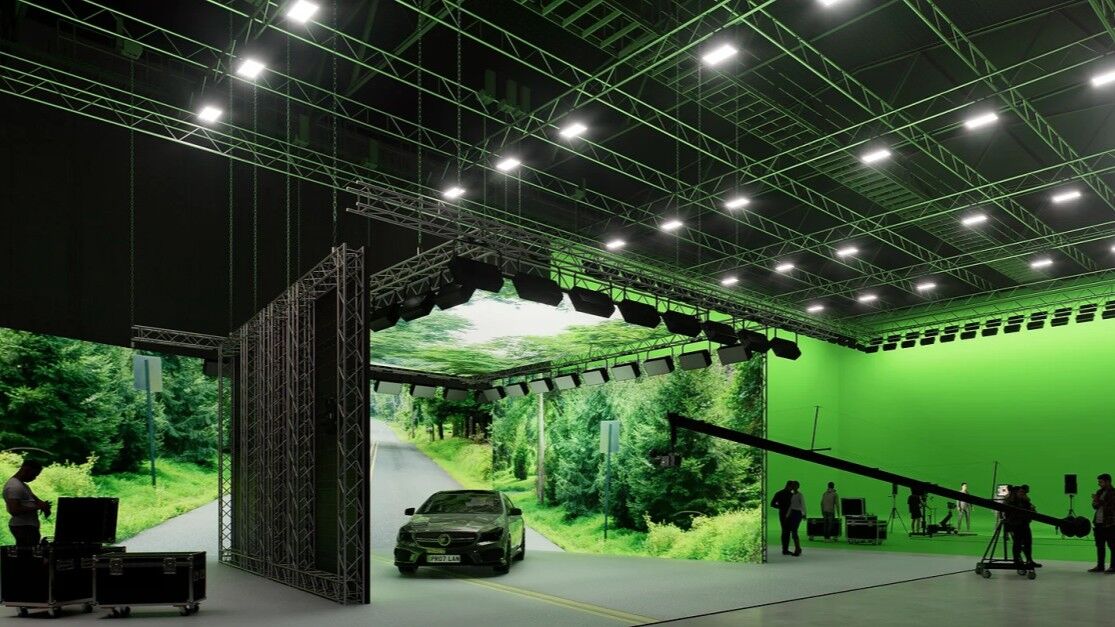Fivefold Studios, based at Dragon Studios in Wales, has launched a virtual production facility.
The studio offers production services, using the latest in-camera visual effects techniques alongside performance capture solutions and advanced AI production tools.
Fivefold Studios offers studio space and offices that span over 12,000ft2, allowing it to host indie projects through to large-scale blockbusters.
The facility’s LED volume allows for real-time capture of visual effects. Additionally, the studio boasts Europe’s largest fixed green screen cove, spanning 5,000ft2 and measuring 33ft in height.
Fivefold will also provide training programmes in partnership with Media Cymru to equip the next generation of production specialists with skills to help maintain Wales as a global production hub.
David Levy, Managing Director of Fivefold Studios, said: “Our in-house team has been part of the virtual production revolution from the very start and is dedicated to building in Wales a centre of excellence for advanced media production.”
Professor Sara Pepper OBE, Media Cymru’s Co-Director said: “Virtual production continues to make waves across the media sector enabling significant business benefits through greater flexibility during production including the ability to make real-time adjustments and enhancements and more streamlined production.”
You are not signed in
Only registered users can comment on this article.

Live TV viewing is still ‘substantial’, says Barb
Live viewing remains a substantial part of watching television, even for younger audiences, according to a new report from UK audience measurement organisation Barb.

Rai sports boss resigns after Winter Olympic commentary errors
Paolo Petrecca, Director of Rai Sport at Italian state broadcaster Rai, has resigned after a series of commentary errors during the Milano-Cortina Olympics opening ceremony.

BBC names Directors of Entertainment and Factual
The BBC has restructured its unscripted commissioning department, naming Ed Havard as Director of Entertainment and Fiona Campbell as Director of Factual.

WBD mails definitive proxy statement to finalise Netflix merger
Warner Bros. Discovery (WBD) will hold a special meeting of shareholders to vote on the merger with Netflix on March 20, 2026. In the meantime, WBD has begun mailing the definitive proxy statement to shareholders for the meeting.

Sky's talks to acquire ITV slow down
Talks by Sky to acquire ITV’s broadcast channels and streaming platform have slowed in recent weeks, according to a report by Reuters.


.jpg)
.jpg)

.jpg)